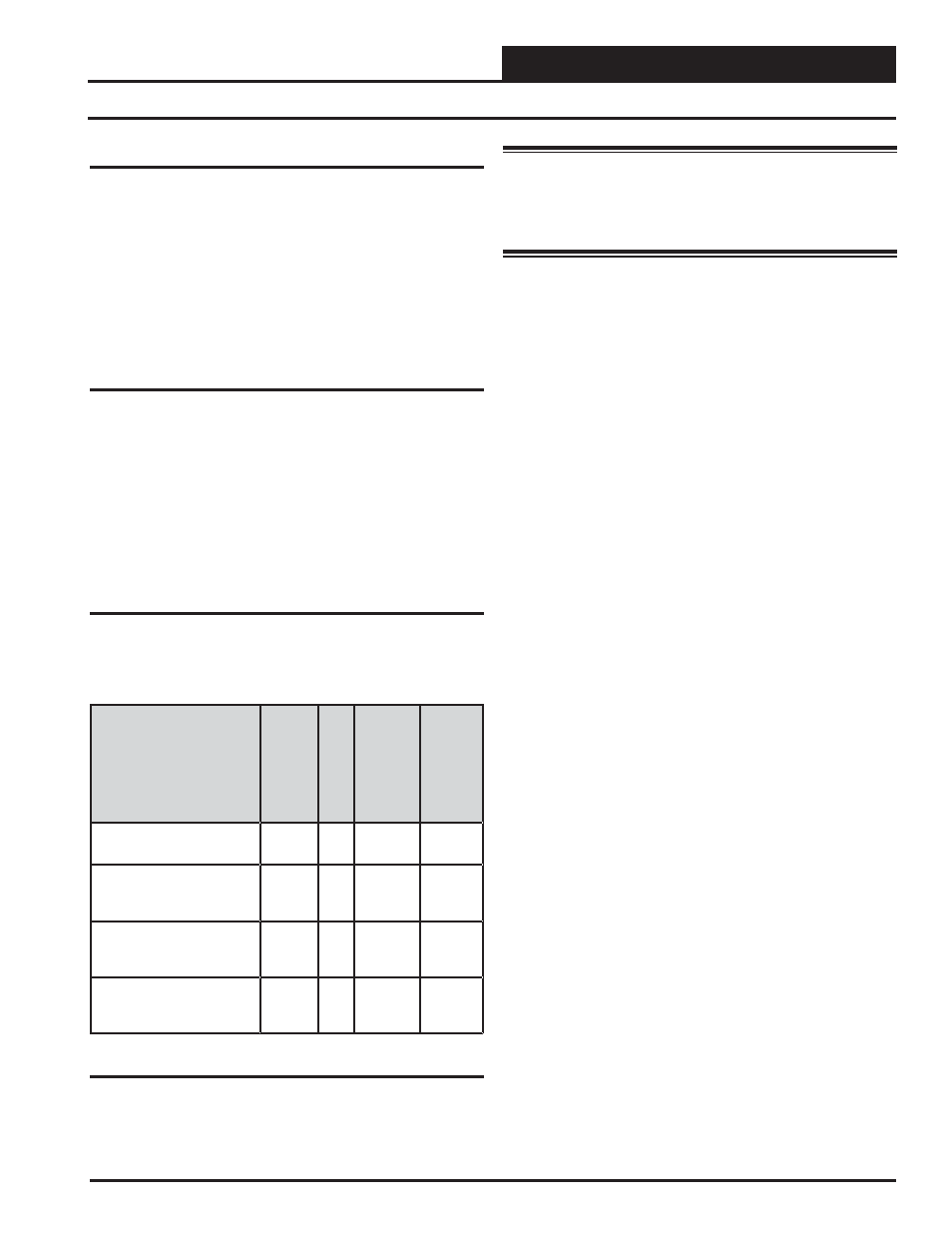Installation and wiring, Important wiring considerations, Rne modular controller field technical guide – Orion System RNE Modular Controller User Manual
Page 17: General, Controller mounting, Considerations

RNE Modular Controller Field Technical Guide
INSTALLATION AND WIRING
17
WARNING: When using a single transformer to power more
than one controller or expansion module, the correct polarity must
always be maintained between the boards. Failure to observe
correct polarity will result in damage to the RNE Controller and
expansion modules.
Please carefully read and apply the following information when wiring
the RNE Controller or the Expansion Modules. See Figure 6 on page
18 for the RNE Controller wiring diagram. See Figures 17 and 18 on
pages 26 and 27 for Expansion Module Wiring.
1. All wiring is to be in accordance with local and national
electrical codes and specifi cations.
2. Minimum wire size for 24 VAC wiring should be 18-gauge.
3. Minimum wire size for all sensors should be 24-gauge.
Some sensors require 2-conductor wire and some require
3-or 4-conductor wire.
4. Be sure that all wiring connections are properly inserted
and tightened into the terminal blocks. Do not allow wire
strands to stick out and touch adjoining terminals which
could potentially cause a short circuit.
5. When communication wiring is to be used to interconnect
RNE Controllers together or to connect to other
communication devices, all wiring must be plenum-rated,
minimum 18-gauge, 2-conductor, twisted pair with shield.
WattMaster can supply communication wire that meets this
specifi cation and is color coded for the network or local
loop. Please consult your WattMaster distributor for
information. If desired, Belden #82760 or equivalent wire
may also be used.
6. Before applying power to the RNE Controller, be sure to
recheck all wiring connections and terminations
thoroughly.
Important Wiring Considerations
General
Correct wiring of the RNE Modular Controller is the most important
factor in the overall success of the controller installation process. In
general, most RNE Controllers are factory installed and wired at the
AAON
®
factory. It is also possible to purchase these controllers through
your local AAON
®
/Orion representative for installation in the fi eld.
Some of the following information pertains to fi eld wiring and may not
apply to your installation since it was pre-wired at the factory. However,
in the unlikely event that troubleshooting of the controller is required,
it is a good idea to be familiar with the system wiring, no matter if it
was factory or fi eld wired.
Controller Mounting
The RNE Controller is housed in a plastic enclosure. It is designed to be
mounted by using the 3 mounting holes in the enclosure base. The RNE
Controller needs to be installed in an environment which can maintain
a temperature range between -30°F and 150°F not to exceed 90% RH
levels (non-condensing). It is important to mount the controller in a
location that is free from extreme high or low temperatures, moisture,
dust, and dirt. Be careful not to damage the electronic components when
mounting the controller. See Table 1 for a list of the required operating
conditions for the RNE Controller and associated expansion modules.
Considerations
The RNE Controller and expansion modules must be connected to a
24 VAC power source of the proper size for the calculated VA load
requirements. All transformer sizing should be based on the VA rating
listed in Table 1.
Contr
ol
De
vice
V
olta
ge
V
A
Load
Temper
atur
e
Humidity
(Non-
Condensing)
OE332-23E-RNE
RNE Modular Controller
24VAC
8
-30°F to
150°F
90% RH
OE333-23-EM
VCM-X Expansion Module
24VAC
10
-30°F to
150°F
90% RH
OE358-23-12R
12 Relay Expansion
Module
24VAC
15
-30°F to
150°F
90% RH
OE356-01-BI
4 Binary Expansion
Module
24VAC
5
-30°F to
150°F
90% RH
Table 1: Voltage and Environment Requirements